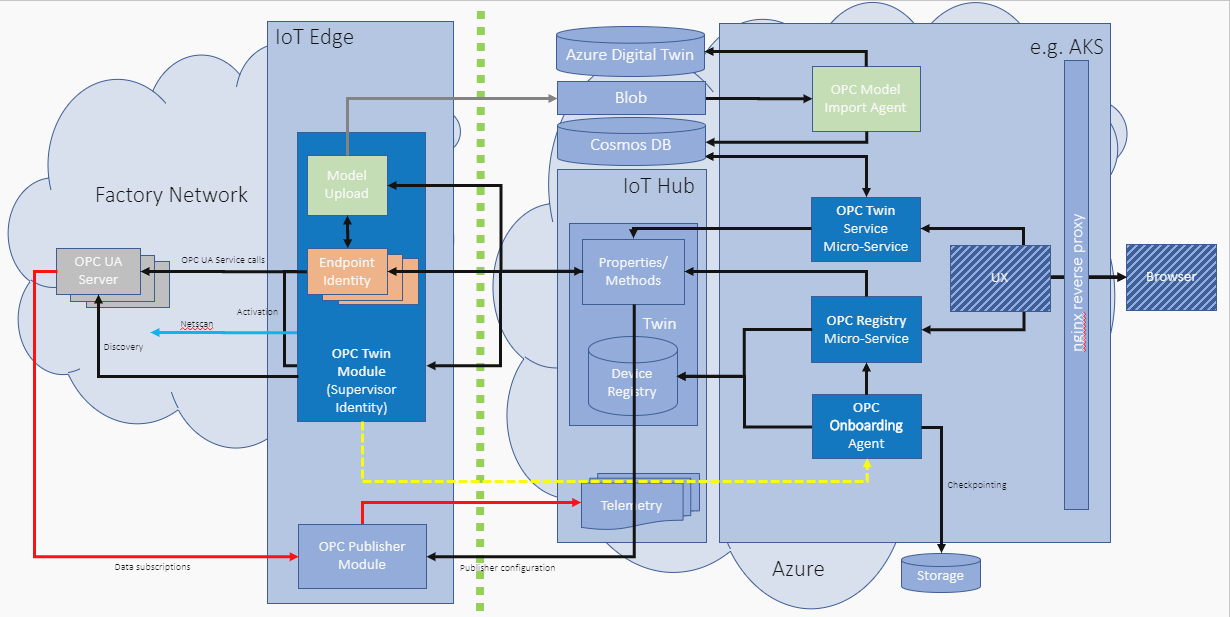Azure Industrial IoT allows plant operators to discover OPC UA enabled servers in a factory network and register them in Azure IoT Hub.
Operations personnel can subscribe to and react to events on the factory floor from anywhere in the world. The Microservices' REST APIs mirror the OPC UA services edge-side and are secured using OAUTH authentication and authorization backed by Azure Active Directory (AAD). This enables your cloud applications to browse server address spaces or read/write variables and execute methods using HTTPS and simple OPC UA JSON payloads.
The REST API can be used with any programming language through its exposed Open API specification (Swagger). This means when integrating OPC UA into cloud management solutions, developers are free to choose technology that matches their skills, interests, and architecture choices. For example, a full stack web developer who develops an application for an alarm and event dashboard can write logic to respond to events in JavaScript or TypeScript without ramping up on a OPC UA SDK, C, C++, Java or C#.
Azure Industrial IoT manages OPC UA Application Certificates and Trust Lists of factory floor machinery and control systems to keep OPC UA client to server communication secure. It restricts which client is allowed to talk to which server. Storage of private keys and signing of certificates is backed by Azure Key Vault, which supports hardware based security (HSM).
The overall Azure Industrial IOT architecture looks like below.
Details on how things work together can be found at architectural code flow.
This repository includes the following Industrial IoT components:
- Cloud Management and Data Plane, including
- Edge components
- Deploy Azure Industrial IoT
- Explore the samples
- Connected Factory Solution Accelerator which you can try out here.
- OPC Vault Dashboard
- OPC Twin Browser
- Read more about Industrial IoT Components here
- See the complete code structure here
Please report any security related issues by following our Security process.
Please enter all other bugs, documentation issues, or suggestions as GitHub Issues here.
This project has adopted the Microsoft Open Source Code of Conduct. For more information see the Code of Conduct FAQ or contact opencode@microsoft.com with any additional questions or comments.
If you want/plan to contribute, we ask you to sign a CLA (Contribution License Agreement) and follow the project 's code submission guidelines. A friendly bot will remind you about it when you submit a pull-request.
Copyright (c) Microsoft Corporation. All rights reserved. Licensed under the MIT License.

